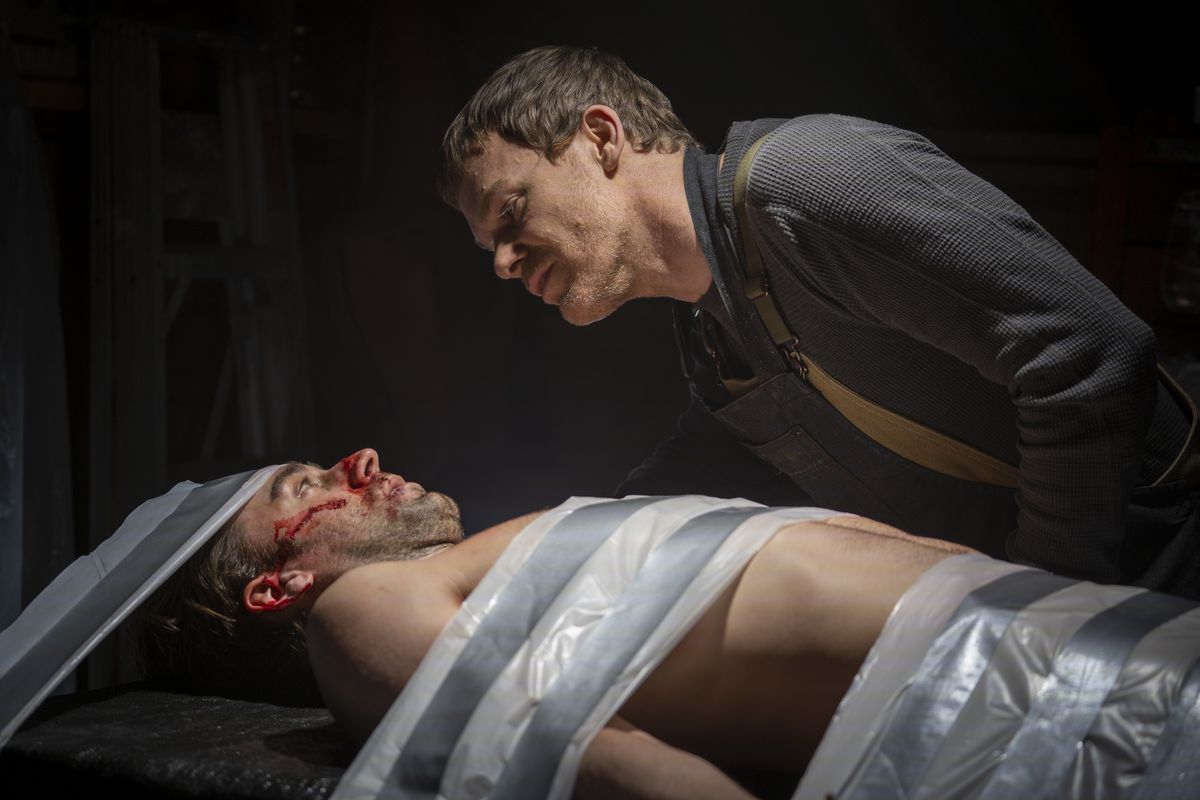By the time it ended in 2013 after eight seasons, Dexter’s most prominent victim was unquestionably Dexter. A parody of itself, the series was mostly killing time: season after season, someone got close to antihero Dexter Morgan only to die themselves, and the slate was wiped clean so that Dexter could once again wonder if he was a good person who did bad things, or a bad one deluding himself with the fairy tale of a good life. The most twisted thing about all this is probably that now, eight years later, someone would think that anyone would want more.
Premiering over the weekend, Dexter: New Blood is not a re-imagining nor radical departure from the Showtime drama. It is, surprisingly, a continuation of the original series that pretends it’s still in the heady good old days of yore, albeit with a change of scenery and a new supporting cast that gives the series room to repeat those familiar beats without the ridiculous baggage that comes with the same cast of characters being duped over and over, year after year — let alone the equally dangerous baggage of having to face any of those characters again. Instead, it takes a new run at an old question: Why does Dexter Morgan kill? And why is killing the thing Dexter is best at?
Still, most of New Blood is perfunctory. It’s a competently paced thriller that, were it not for the callbacks — Dexter’s son Harrison, now a teenager after his toddling last appearance; the ghost of Dexter’s sister Deborah, who died in the series finale — would function well as a standalone miniseries. Dexter Morgan, a reformed serial killer, has taken a vow to not harm any living thing and has spent the approximate decade between Dexter and New Blood becoming a happy fixture in the small Upstate New York town of Iron Lake under the name Jim Lindsay.
Temptation strikes Dexter when an edgy visitor comes to town with bad vibes in tow, and soon Dexter feels compelled to kill again. It’s at that moment that New Blood becomes fascinating, not because it’s particularly excellent television (at its best, it’s merely fine) but because, like in the original series, the show comes to life in its portrayal of Dexter’s kill ritual.
Dexter’s kill room scenes are the sort of thing TV shows hope to spin into Emmy gold. They’re essentially tiny one-act plays, where Michael C. Hall gets to stretch his theater chops and Dexter’s writers get to probe the morality play at the heart of the show a bit more. In these moments, Dexter Morgan comes alive, showing his victims his true self after he’s exposed theirs — often literally, as they are almost always naked and plastic-wrapped to a table. Usually, Dexter uses the opportunity to rationalize his murder, to argue before a captive audience that he holds the moral high ground because he adheres to a code, and that code involves making certain that his targets are guilty of harming innocents, or some other pernicious evil that is better rid from the Earth.
Even in its heyday, the kind of show Dexter was at a given moment was usually in flux, wildly vacillating between two poles: On one end, Dexter was a philosophical character drama about nature vs. nurture and morality. On the other, it was a cat-and-mouse thriller between a killer with scruples and a killer with none. When the show was at its best and embracing the former philosophy, the kill room scenes showed Dexter as he is, and how he thinks of himself. But in its pulpier, and ultimately worse, mode, the kill room scenes were mostly about just desserts, there to cast Dexter as the good guy and his target as the villain that deserved it.

To its credit, New Blood is interested in the more introspective murder. The 2021 revival pointedly uses Dexter’s ever-present monologue to ask whether his life is starting to take a downturn because he slipped up and killed, or if it’s going to shit because he abstained for so long in denial of who he — and the now-grown son he abandoned in the Dexter finale — really is.
Through this prism, Dexter new and old becomes a study of masculinity and intimacy. Cold and dead-eyed in his day-to-day life, Dexter Morgan tries to fit into a life that seems normal and right to him: Where he has a good job, a good family, and maybe even friends. Over and over again, intimacy is attempted, and rejected, in favor of the kill room, where Dexter has power, where he can assert that he is right and his victim is wrong, where he feels most like himself. If Dexter Morgan is redeemable, he must escape the kill room he can’t stop returning to.
There’s a comparison to the Incredible Hulk here. When done right, the character is fueled by a terrible irony: Repressed scientist Bruce Banner wants to do everything in his power to keep himself from transforming into his monstrous alter ego. The audience, however? There’s nothing they’d like to see more. In its first four episodes, New Blood seems at least mildly interested in this tension, carefully setting up the snug woodsy community that will likely go to hell should Jim Lindsay become Dexter Morgan once more. But we’ve already seen this happen, only then it was eight straight years in Miami. Dexter’s problems aren’t solved by a change of scenery, but they might be with a change of perspective — one that New Blood seems fundamentally uninterested in.
Dexter Morgan doesn’t turn into a computer-generated rage monster, but he is trying to keep a monstrous part of himself in check; the thrill of Dexter is in witnessing his attempts to channel that monster — dubbed his “Dark Passenger” — and the consequences that emerge from the fact that there’s no real way to channel murder into positive character growth. In repeating many of the familiar beats from the previous series, Dexter: New Blood demonstrates the same inertia Dexter and Dexter Morgan suffers from. Nothing has changed here. Some monsters are not that complicated. Maybe it’s foolish that we ever thought they were at all.
Dexter: New Blood airs new episodes on Sunday nights on Showtime and Showtime Anytime.
Source: https://www.polygon.com/reviews/22772619/dexter-new-blood-review
- "
- All
- audience
- BEST
- Bit
- blood
- change
- code
- community
- comparison
- consequences
- content
- credit
- DID
- died
- Drama
- earth
- Face
- faces
- family
- fascinating
- fine
- First
- fit
- function
- Ghost
- Gold
- good
- Growth
- here
- High
- How
- HTTPS
- intimacy
- IT
- Job
- latest
- Long
- Making
- miami
- New York
- Opportunity
- Other
- perspective
- philosophy
- play
- Positive
- power
- probe
- Run
- Series
- setting
- small
- So
- son
- Spin
- Strikes
- Study
- Target
- television
- The
- Theater
- time
- transforming
- tv
- weekend
- WHO
- year
- years
- youtube











